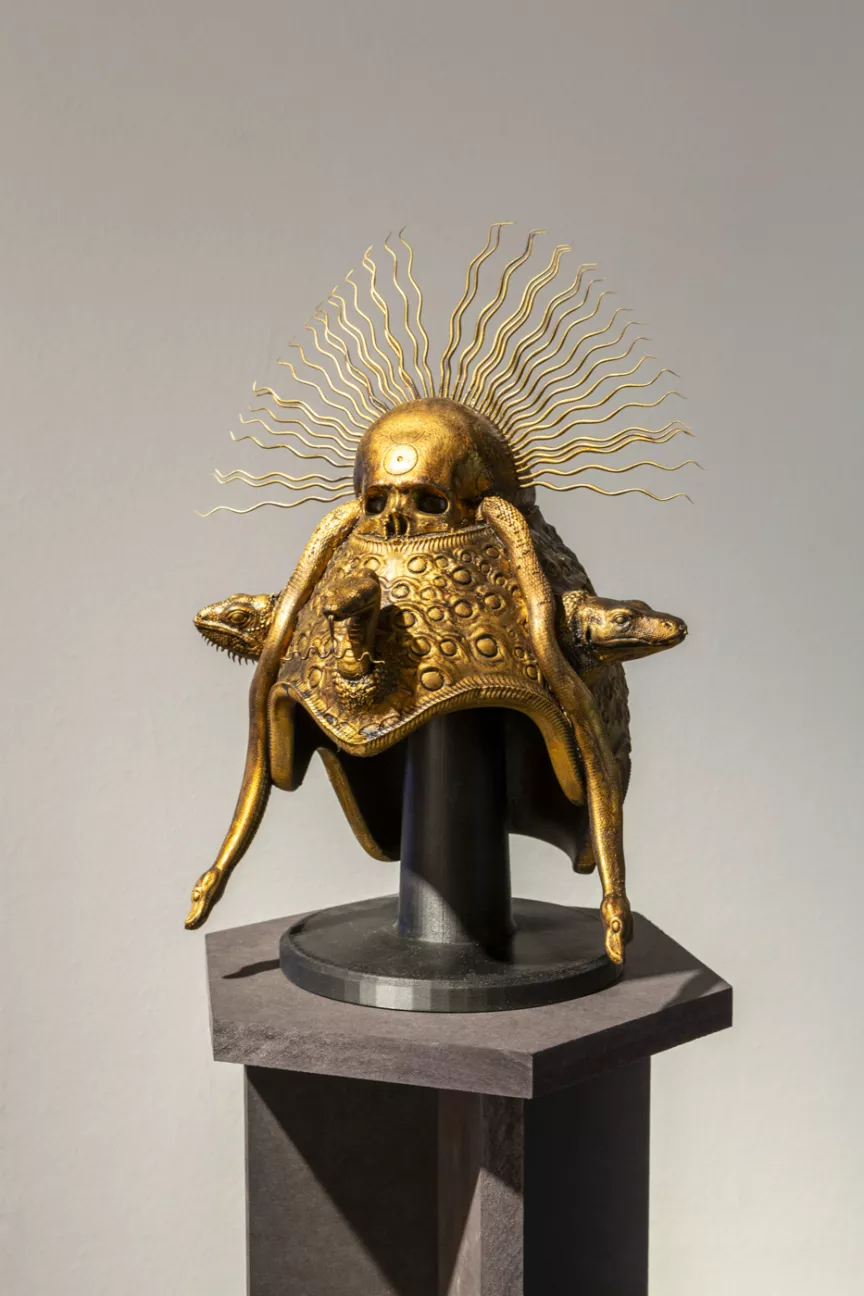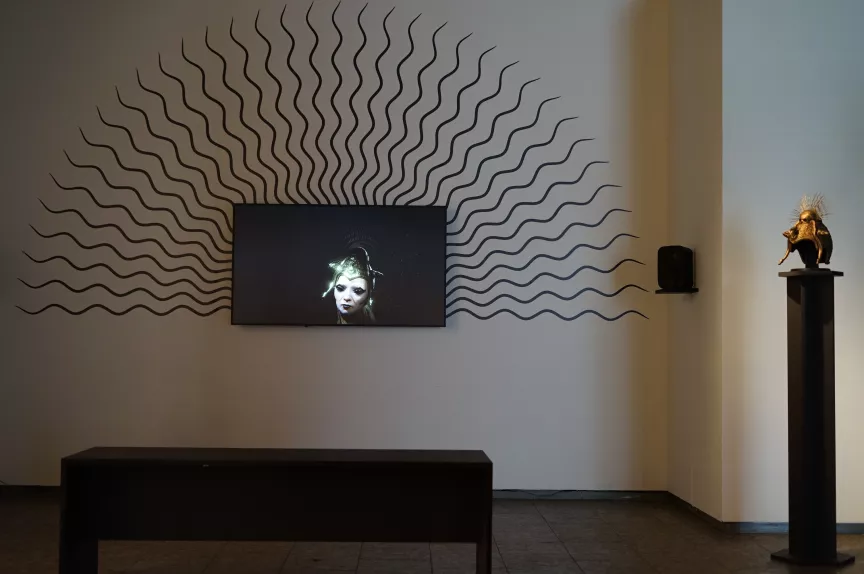András Cséfalvay

Prometheus Unbound, Total sacrifice. For Three Voices, Sung Sadly But With Vigor
Video opera, 20 min, 2024
Inspired by Prometheus Unbound, a lyrical drama written by the English Romantic poet Percy Shelley and published in 1820, András Cséfalvay crafts a three-act animated video opera that reflects on the human quest for unlimited energy and the price we are willing to pay for it. His starting point is the story of Prometheus, one of the titans in Greek mythology, who stole fire from Olympus to give to humanity in the form of knowledge, technology and "civilization", for which he was punished by the gods. András combines ancient mythology with science fiction aesthetics to ask: How ready are we to trust the power of knowledge and put our faith in progress? How does our desire to dominate nature inform our thinking about nuclear energy?
The video work unfolds these questions with the help of three mythological figures—Prometheus, Asia and Cosmia—who all represent different positions. Drawing on his in situ research at the Bátaapáti repository for low- and medium-level radioactive waste in Hungary, András Cséfalvay transforms the repository’s underground tunnels and its system of concrete containers used to package waste into the backdrop of a conversation sung between his protagonists. They discuss the ultimate utopia of moving from nuclear fission to fusion, in order to release the endless energy we so desire to in order to satisfy the needs of our unsustainable ways of life. The figure of Prometheus calls for his release from captivity and in exchange, promises to equip humanity with this knowledge. But is this the path we want to take, and if yes, what does it really entail?
“The utmost goal of culture is domination,” the nymphs sing. “How can I change something without force? That is the ecological question!” At the heart of András’s work lies the current societal debate about energy futures, the desired green transition and the climate emergency we are now experiencing on a planetary level. Is a technological fix possible, or even desirable? Is there any room for techno-optimism? The artist prompts us to think about the relationship between humanity and nature, and the dilemma that more knowledge often leads to more domination: “I want to know you, so you don’t have power over me. But I don’t want to know you so much that I could overpower you.” His mythological creatures stress the more-than-human implications of our actions.
In this new work, András brings together his longstanding interest in the entanglements of science, knowledge and power with his cross-genre practice of combining conceptual visual arts and experimental music to attempt a project of dystopian, yet hopeful world-building through mytho-poetic and speculative storytelling. Insisting on the usefulness and reality of fiction, he invites us to explore far-reaching philosophical questions and delve into the relationship between culture and technology, using humor to hone his critical reflections. Bátaapáti and its repository are not only present in the video opera through its animated scenography; András also includes a subtle collaborative element. He recorded the voices of children from the village’s elementary school chanting the refrain of the opera in Hungarian and transformed it into the murmur of the sea that visitors to the exhibition may perceive as a sort of fantasy language.

ANDRÁS CSÉFALVAY (1986) is a visual artist, digital storyteller, mytho-poet from Bratislava, currently teaching at the Academy of Fine Arts in Bratislava. After his studies of painting and mathematics, he wrote a dissertation on the usefulness and reality of fiction. He delves into the relationship between culture and technology, the political and ethical aspects of listening to non-dominant voices in world-interpretation. His latest works look at the relationship between astronomers and indigenous peoples in the construction of the Mauna Kea telescopes, the flight of dinosaurs as a technology for survival after the extinction and the re-categorization of the planet Pluto. He is a recipient of the Oskar Čepan Award for young visual artists, member of The New Centre for Research and Practice, is a co-founder of the Digital Arts Platform at the Academy of Fine Arts in Bratislava. He exhibited in KunstWerke Berlin, Art In General New York, Trafo Gallery Budapest, Firstdraft Sydney, Karlin Studios Prague among other institutions.
http://www.andrascsefalvay.com/




